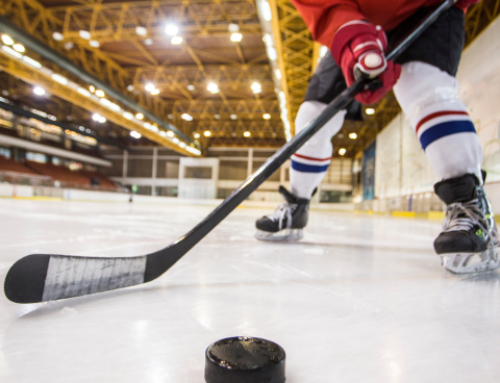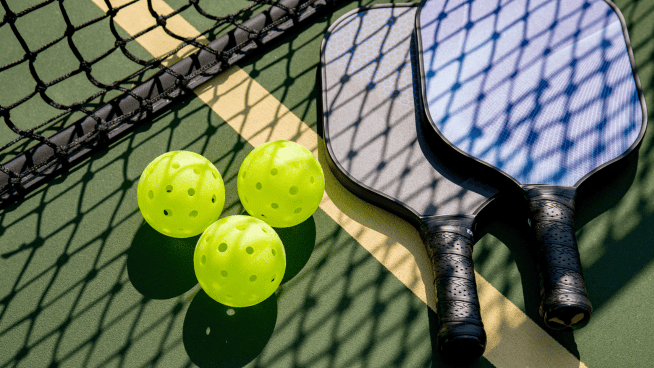3 Nutrition Hacks to Improve Your Sports Performance
If you’re an athlete and you imagine your body as a car, it’s more like a Ferrari than a minivan.
What type of fuel would you put in a minivan? Probably the cheap kind. What about a Ferrari? Premium, baby.
The Ferrari deserves only the very best fuel to help it go. You should view your nutrition the same way to keep yourself training and performing at an elite level.
Below are three sports nutrition hacks all athletes can use to improve their performance on and off the field.
1. Consume protein- and carbohydrate-dense foods with every meal
With grueling practices, workouts, games and travel, it is easy for the body to burn energy from its own muscle tissue. Protein is the building block of muscle, and without enough of it in your diet, your body will struggle to build or maintain muscle mass. Losing muscle during the season or off-season can lead to decreases in strength, speed, stamina and an increased risk of injury.
Carbohydrates limit the rate of muscle protein breakdown and serve as the body’s main fuel source during activity. During the season and intense training in the off-season, carbohydrates aid in muscle recovery by restoring glycogen stores in the muscles and liver so the body does not fuel itself with protein from muscle tissue. Check out the video above to learn how to add protein and carbohydrates to your plate from sports dietitian Leslie Bonci.
A good meal formula for athletes: consume one or two palm-sized servings of a protein-dense food (chicken breast, beef, eggs), one or two handfuls of a carb-dense food (fruit, oats, brown rice, sweet potato) and one fist-sized portion of vegetables (spinach, kale, peppers) with every meal.
RELATED: Carb Backloading: A Nutrition Hack for Ultimate Performance
2. Hydrate
Hydration is the engine that powers body composition, energy, nutrient absorption and muscle repair. So it’s crucial for athletes to hydrate properly.
You have likely heard something along the lines of “drink 16 ounces of water for every pound lost during activity.” The problem with this advice is that it just isn’t practical. Who weights himself or herself during a game or practice? Nobody. A better piece of advice is to drink a cup of water or a sports drink like Gatorade or Powerade every 20 minutes.
Another good tool athletes can use: set an alarm to go off every 60 to 90 minutes to remind themselves to drink water throughout the day. Learn how to know if you’re dehydrated in the video playlist above.
3. Use supplements wisely
The supplement industry is a lot like playing Whac-A-Mole. Every week, it seems, a shiny new product pops up with a bunch of “cool” claims; however, many supplements don’t do a thing and some are unsafe. The few that are really effective stick out for good reason.
In my opinion, the essential supplements for athletes are a quality protein supplement, fish oil and, in certain sports, creatine. Check out the video playlist above to learn more about the role supplements should play in your diet.
A protein supplement is a great way to ensure you are getting the right amount of protein in your diet. It is also beneficial during and after a workout. A protein supplement that contains a whey isolate with minimal sugar is best.
Fish oil gives the body the omega-3 fatty acids EPA and DHA, which are extremely important for controlling the inflammation response to training and protein absorption and facilitating improved muscle growth and recovery. Fish oil supplements should be molecularly distilled and third-party tested.
RELATED: 3 Reasons Why You Should Take A Fish Oil Supplement
Finally, if you’re competing in sports like football, baseball, Olympic lifting, powerlifting or sprinting in track & field, creatine can aid your performance, since these sports engage the energy system in which creatine plays a major role. Make sure the supplement is creatine monohydrate and not a different form. Supplement 3 to 5 grams of creatine monohydrate per day.
[cf]skyword_tracking_tag[/cf]RECOMMENDED FOR YOU
3 Nutrition Hacks to Improve Your Sports Performance
If you’re an athlete and you imagine your body as a car, it’s more like a Ferrari than a minivan.
What type of fuel would you put in a minivan? Probably the cheap kind. What about a Ferrari? Premium, baby.
The Ferrari deserves only the very best fuel to help it go. You should view your nutrition the same way to keep yourself training and performing at an elite level.
Below are three sports nutrition hacks all athletes can use to improve their performance on and off the field.
1. Consume protein- and carbohydrate-dense foods with every meal
With grueling practices, workouts, games and travel, it is easy for the body to burn energy from its own muscle tissue. Protein is the building block of muscle, and without enough of it in your diet, your body will struggle to build or maintain muscle mass. Losing muscle during the season or off-season can lead to decreases in strength, speed, stamina and an increased risk of injury.
Carbohydrates limit the rate of muscle protein breakdown and serve as the body’s main fuel source during activity. During the season and intense training in the off-season, carbohydrates aid in muscle recovery by restoring glycogen stores in the muscles and liver so the body does not fuel itself with protein from muscle tissue. Check out the video above to learn how to add protein and carbohydrates to your plate from sports dietitian Leslie Bonci.
A good meal formula for athletes: consume one or two palm-sized servings of a protein-dense food (chicken breast, beef, eggs), one or two handfuls of a carb-dense food (fruit, oats, brown rice, sweet potato) and one fist-sized portion of vegetables (spinach, kale, peppers) with every meal.
RELATED: Carb Backloading: A Nutrition Hack for Ultimate Performance
2. Hydrate
Hydration is the engine that powers body composition, energy, nutrient absorption and muscle repair. So it’s crucial for athletes to hydrate properly.
You have likely heard something along the lines of “drink 16 ounces of water for every pound lost during activity.” The problem with this advice is that it just isn’t practical. Who weights himself or herself during a game or practice? Nobody. A better piece of advice is to drink a cup of water or a sports drink like Gatorade or Powerade every 20 minutes.
Another good tool athletes can use: set an alarm to go off every 60 to 90 minutes to remind themselves to drink water throughout the day. Learn how to know if you’re dehydrated in the video playlist above.
3. Use supplements wisely
The supplement industry is a lot like playing Whac-A-Mole. Every week, it seems, a shiny new product pops up with a bunch of “cool” claims; however, many supplements don’t do a thing and some are unsafe. The few that are really effective stick out for good reason.
In my opinion, the essential supplements for athletes are a quality protein supplement, fish oil and, in certain sports, creatine. Check out the video playlist above to learn more about the role supplements should play in your diet.
A protein supplement is a great way to ensure you are getting the right amount of protein in your diet. It is also beneficial during and after a workout. A protein supplement that contains a whey isolate with minimal sugar is best.
Fish oil gives the body the omega-3 fatty acids EPA and DHA, which are extremely important for controlling the inflammation response to training and protein absorption and facilitating improved muscle growth and recovery. Fish oil supplements should be molecularly distilled and third-party tested.
RELATED: 3 Reasons Why You Should Take A Fish Oil Supplement
Finally, if you’re competing in sports like football, baseball, Olympic lifting, powerlifting or sprinting in track & field, creatine can aid your performance, since these sports engage the energy system in which creatine plays a major role. Make sure the supplement is creatine monohydrate and not a different form. Supplement 3 to 5 grams of creatine monohydrate per day.
[cf]skyword_tracking_tag[/cf]









